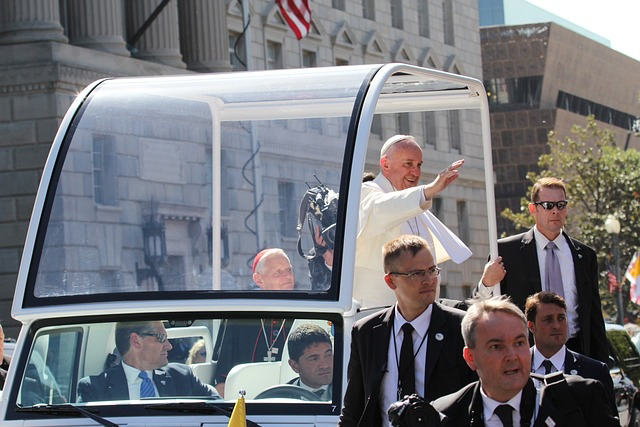In a solemn and deeply emotional ceremony held at St. Peter’s Basilica today, Pope Francis was laid to rest, concluding a papacy marked by advocacy for the marginalized and efforts to modernize the Catholic Church. World leaders, religious figures, and thousands of mourners from across the globe gathered to pay their final respects to a pontiff who reshaped the face of the Vatican during his tenure.
The funeral, steeped in centuries-old tradition, was led by high-ranking clergy and attended by an extraordinary assembly of dignitaries, reflecting Pope Francis' immense global influence. Prince William, representing King Charles III, was present among the mourners, alongside former U.S. President Donald Trump, marking a rare moment of unity amid an often divided international stage. Leaders from South America, Europe, Africa, and Asia also joined the congregation, highlighting the late Pope’s enduring reach across diverse cultures and political landscapes.
The ceremony began with a traditional Requiem Mass, offered in Latin, honoring the Pope’s wish for a modest service focused on reflection and gratitude rather than grandiosity. Cardinals and bishops, adorned in ceremonial vestments, paid tribute to the Pope’s tireless commitment to social justice, his vocal support for refugees, and his passionate calls to address climate change.
Security around Vatican City was notably heightened as thousands of pilgrims lined the streets, many holding candles and rosaries, silently mourning a figure they saw as a beacon of compassion and humility. Inside the Basilica, the atmosphere was heavy with emotion as the choir sang ancient hymns that resonated beneath the dome Michelangelo once designed, evoking a timeless connection between the Church's storied past and its uncertain future.
Pope Francis, born Jorge Mario Bergoglio in Buenos Aires, Argentina, made history as the first pontiff from the Americas and the first Jesuit Pope. Throughout his papacy, he sought to make the Church more inclusive, often clashing with traditionalists while inspiring a new generation of believers. His tenure was also marked by decisive action against clerical abuse, an issue that had plagued the Vatican’s reputation for decades.
Following the Mass, his body was interred beneath St. Peter's Basilica, in a simple tomb chosen by the Pope himself, symbolizing his life-long emphasis on humility and service rather than personal glorification. The burial was accompanied by prayers and readings, closing one of the most significant chapters in the modern history of the Catholic Church.
The passing of Pope Francis leaves the Catholic world at a crossroads. As the conclave of cardinals prepares to elect his successor, questions linger about the future direction of the Church in an increasingly secular and polarized world. Will the next Pope continue the reforms and progressive stances championed by Francis, or will the Church return to more conservative roots?
From a broader perspective, Pope Francis’ impact transcended religion. His outreach to Muslim leaders, environmental activism, and advocacy for human rights positioned him as a global moral authority in a time of deep geopolitical tensions. His death not only marks the end of an era for Catholics but also for countless others who found in him a voice for the marginalized and the oppressed.
In a world fraught with division, the presence of global leaders from varying political and ideological backgrounds at his funeral serves as a testament to the universal respect Pope Francis commanded. While disagreements and criticisms were not absent during his lifetime, today's unity underscored a shared recognition of a man who consistently sought to bridge divides with compassion, courage, and conviction.
As the world reflects on his legacy, it becomes evident that Pope Francis' influence will resonate for generations. Whether one agreed with his policies or not, his commitment to dialogue, mercy, and social responsibility remains an enduring blueprint for leadership in an era desperately in need of empathy and understanding.
